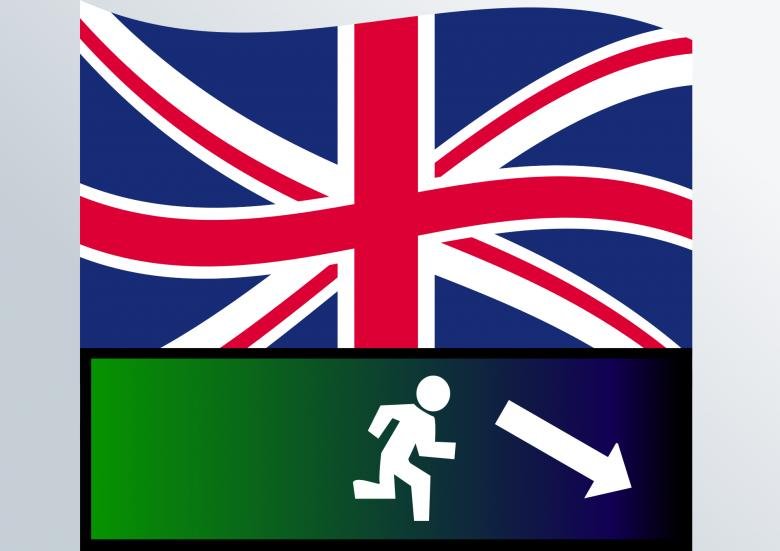Nearly five months after Britain’s official departure from the European Union (EU) following the end of the Brexit transition period, many EU citizens in Britain are considering leaving the country amid rising concerns over their status.
According to a recent survey, one in 10 EU nationals in Britain are considering leaving after June 30, the deadline for applications to remain lawful in the post-Brexit Britain.
The survey by the Independent Monitoring Authority for the Citizens’ Rights Agreements, a new statutory body set up under the EU withdrawal agreement, found that common reasons for wanting to leave include a lack of trust in the government and feeling that Britain “is a less welcoming place as a result of Brexit.”
Around 30 per cent of respondents said they have concerns that their rights would not be upheld by public bodies in Britain.
Maike Bohn, co-founder of the3million, the largest campaign organization for EU citizens in Britain, said the results have highlighted “really, really big concerns” that members of her organisation have.
Adding to those concerns is the lack of physical documentation being provided to those EU citizens in Britain who have received residence, Bohn said.
“When you listen to our members, they really worry that from July 1 this year, they have no proof that they are right for residence in the UK, because their new status is digital only. And that worries about 90 per cent of people we surveyed recently, because they feel they hold nothing in their hands,” she told Xinhua.
The lack of physical documentation has worried many EU citizens as physical proof of residence is often required for renting and buying a house, applying for a job, and receiving medical treatment.
“They feel they’re helpless, they have nothing to prove. They can’t prove to a landlord that they are allowed to rent, they can’t prove to an employer that they are allowed to take this job, and people are very, very worried about that. And some of them don’t really know what their rights are and what’s changing, and they are worried about discrimination,” she said.
Bohn said she believes that those concerns highlighted in the survey, including that one in four feel they are second-class citizens, have led to EU citizens feeling they want to leave Britain.
With slightly more than one month to go until the deadline for EU citizens to apply to lawfully reside in Britain, concerns are also growing over the awareness of the situation.
“We reckon hundreds and thousands of people still don’t know or don’t think they have to apply. And that can be children. It can be elderly people, people who are not following the news, people who have been in the UK for 40 years, and they think: well, I’m here, I’ve got a national insurance number, I don’t have to apply at all. These people will run into huge problems from the first of July,” Bohn said.
According to Bohn, members of her organization have already been reporting that they are running into trouble due to a lack of physical documentation after Brexit.
“We have only 40 days to go. We have reports of landlords already asking for this status and saying, ‘without it, I have to kick you out in 40 days,’” Bohn said.
She said she believes that Britain’s Home Office needs to do more to make EU citizens aware of exactly what needs to be done, as many of them do not think that the information available is clear.
“I think the first of July is going to be a huge shock, a shock for people. Their lives are really going to change. They will have to prove that they belong and have rights,” she said.
Bohn said if one in 10 EU citizens do leave Britain, it will have a “devastating impact” on the British society.
“As British society reopens now, they can’t afford to lose more nurses, doctors, waitresses, carers. They really need to address these issues, quite urgently,” she said.
Bohn said Britain could risk a “massive shortage” of healthcare staff, many of whom are from EU countries.
“I think the UK really needs to hold on to the EU citizens who are here,” she said, noting that some EU countries are actively recruiting healthcare staff.
Organizations like the3million are calling on the British government to engage more with EU citizens in Britain.
While the June 30 deadline is approaching, the Home Office has admitted that there is a backlog of 300,000 people still waiting for a decision on whether they have the new immigration status required after Brexit.
This has led to many EU citizens feeling they no longer have a place in the British society, Bohn noted.
For now, the 3million and many other organisations are focused on bringing awareness to the situation.
“We want to be constructive. I think we all have the same aim. We want the millions of EU citizens who have made the UK their home, to feel at home and continue to live here. And I think we need to sit down and address what’s missing,” she said.







Click here to change your cookie preferences